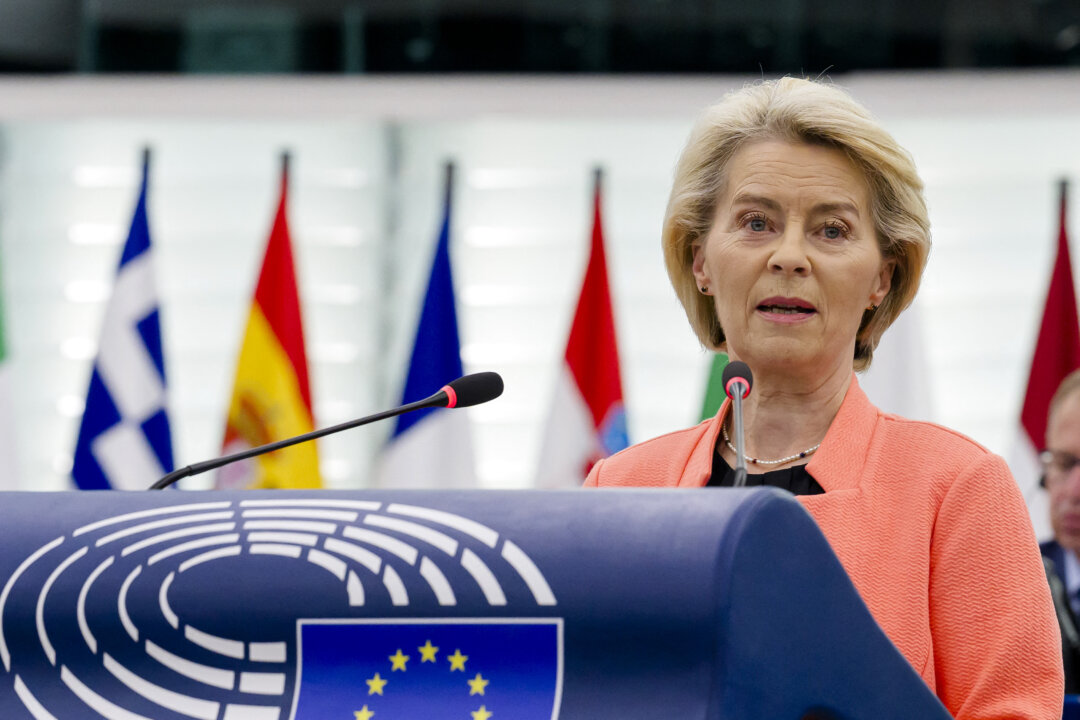EU Proposes Ambitious $2.3 Trillion Budget Amid Skepticism
European Commission President Ursula von der Leyen's proposed $2.3 trillion budget aims to address multiple crises but faces criticism over its feasibility and funding sources.
Subscribe to unlock this story
We really don't like cutting you off, but you've reached your monthly limit. At just $5/month, subscriptions are how we keep this project going. Start your free 7-day trial today!
Get StartedHave an account? Sign in
Overview
- Ursula von der Leyen, President of the European Commission, proposed a $2.3 trillion budget for the EU covering 2028 to 2034.
- The budget aims to tackle crises such as the war in Ukraine, climate change, and infrastructure needs, while supporting farmers.
- Lawmakers express skepticism regarding the feasibility of the proposed budget, questioning its financial calculations.
- The budget includes significant increases in defense, space spending, and migration management, raising concerns about its practicality.
- Funding sources for the budget include customs duties, VAT, and new measures like a carbon emissions trading system and tobacco duty.
Report issue

Read both sides in 5 minutes each day
Analysis
The reporting appears neutral and objective by presenting a balanced view of the EU's new budget proposal. It includes the EU chief's ambitious vision and justifications, alongside immediate criticisms from EU lawmakers and even internal dissent. The article also incorporates the perspective of protesting farmers, providing a comprehensive overview of various stakeholder reactions without editorializing or using loaded language.
Articles (3)
Center (2)
FAQ
The EU budget adoption involves the European Commission submitting a draft by September 1, followed by the Council adopting its position by October 1. The European Parliament then takes its position within 42 days. If the Council and Parliament disagree, a Conciliation Committee negotiates for 21 days to reach an agreement, which must then be approved within 14 days by both bodies. If no agreement is reached, the budget process restarts.
The proposed $2.3 trillion budget faces skepticism regarding its financial feasibility and the practicality of significant budget increases in defense, space spending, and migration management. Lawmakers question the accuracy of the financial calculations and the viability of funding sources including new revenues like carbon emissions trading and tobacco duty.
The budget aims to tackle several crises, including the ongoing war in Ukraine, climate change impacts, infrastructure needs, and support for farmers, while also increasing allocations for defense, space activities, and migration management.
Funding sources for the proposed EU budget include traditional sources such as customs duties and value-added tax (VAT), as well as new measures like a carbon emissions trading system and a tobacco duty to broaden revenue streams.
The EU enforces strong budget control by separating decisions on commitments and payments. Commitments reserve appropriations for future payments arising from legal commitments, while payments cover expenditure due that year. This ensures commitments are spread evenly over multiple years, allowing proper management and control.
History
- This story does not have any previous versions.

